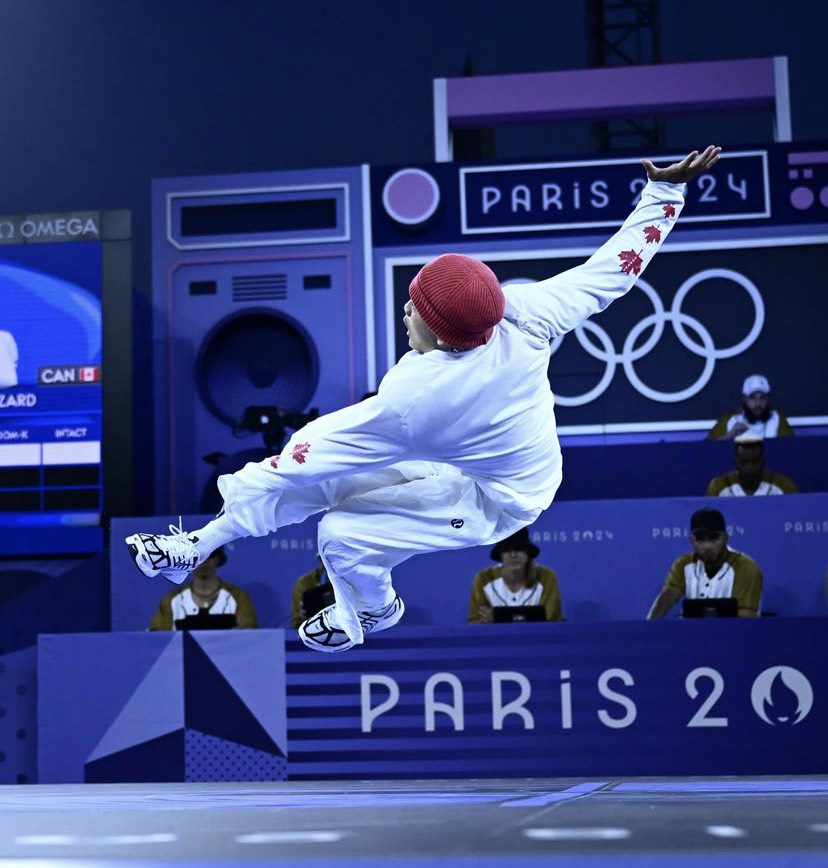
The Olympic Games are often a showcase of the world’s most exciting and diverse sports, with new disciplines frequently being introduced to keep the games fresh and engaging. Recently, the International Olympic Committee (IOC) has made headlines for deciding to exclude Breaking from the 2028 Summer Games in Los Angeles. This decision marks a significant shift, as breaking was a much-anticipated addition to the Paris 2024 Games and had been poised to continue its momentum into the LA 2028 Games. Let’s delve into why breaking is not part of the 2028 Olympic program and what this means for the future of the sport.
Breaking made its Olympic debut this year at the Paris 2024 Summer Games, where it was met with enthusiasm and intrigue, especially by the Hip Hop community. As one of the new sports introduced, breaking represented a nod to the evolving nature of the Olympics and the IOC’s commitment to including more urban and youth-oriented sports. The inclusion of breaking was celebrated by many as a recognition of Hip-Hop street culture and a testament to the sport’s global appeal.
The decision to exclude breaking from the 2028 Olympics in Los Angeles comes as a surprise to many. Several factors contributed to this shift:
- Event Programming and Logistics: Organizing the Olympics involves intricate planning and significant resources. The IOC and the LA 2028 organizing committee have to balance a multitude of sports, and occasionally, this means reevaluating which sports make the final cut. With a growing list of sports and limited time slots, some disciplines inevitably face exclusion.
- Sports Performance and Popularity: The decision may also be influenced by the performance and popularity of breaking during its initial Olympic appearance. While breaking garnered attention in Tokyo, the IOC could be assessing its long-term popularity and global engagement to determine if it should continue.
- Cultural and Strategic Shifts: The inclusion of new sports often aligns with the cultural and strategic goals of the Olympics. Shifts in these goals or changes in the global sports landscape could influence the decision to remove a sport from the program.
- Notable Performances: The performance outcomes of certain athletes may have impacted the IOC’s decision for considering brining Breaking back. For instance, the underwhelming performance of an Australian female breakdancer Raygun, who received a zero-point score in her event, may have put the nail in the coffin to concerns about the sport’s competitive viability and its future in the Olympics. This particular performance, marked by its high-profile nature and the subsequent media coverage, might have influenced perceptions about breaking’s place in the Olympic lineup.
As we reflect on the latest updates, it’s essential to celebrate the achievements of this year’s breaking competitors. The 2024 Paris Olympics has been a historic event for breaking, and the B-Boys and B-Girls who competed have left an indelible mark on Olympic history. With the news that breaking will not be part of the LA 2028 Games, the 2024 Olympics might very well stand as a unique milestone for the sport.
Phil Wizard of Canada who claimed the gold medal in the men’s breaking category, delivered a performance that combined precision, creativity, and sheer energy. His routines were not just demonstrations of physical prowess but also expressions of artistic vision and personal style. His gold medal win is a testament to years of dedication, training, and passion for the art of breaking in Canada. Shout out to Victor Montalvo who snatched the Bronze medal representing the United States.
Ami Yuasa of Japan who captured the gold medal in the women’s category, showcased an incredible blend of strength, grace, and innovation. Her performances were a celebration of the vibrant culture of Hip-Hop and breaking in Japan and a showcase of what can be achieved when technical skill meets artistic expression. Her gold medal win represents a significant milestone for female B-Girls in the sport.
The gold medal victories in breaking at the 2024 Paris Olympics are significant for several reasons:
- Recognition of Breaking: The inclusion of breaking in the Olympics provided a global platform for the sport, highlighting its legitimacy and the high level of skill required. The achievements of the gold medalists are a testament to breaking’s place in the competitive sports landscape.
- Inspiration for Future Generations: The performances of these athletes serve as an inspiration for future generations of bboys and bgirls. Their success on such a prestigious stage demonstrates that with dedication and talent, young dancers can achieve their dreams and make their mark on the world.
- Celebration of Cultural Diversity: Breaking is deeply rooted in Hip-Hop culture and street dance traditions. The Olympic recognition of breaking helped to celebrate and validate these cultural expressions on an international platform.
While breaking will not be featured in the LA 2028 Olympics, the legacy of the 2024 Paris Games will continue to resonate within the breaking community and beyond. The sport’s debut on such a grand stage was a significant achievement, and the gold medalists’ performances will be remembered as highlights of this historic moment.
As we move forward, let’s congratulate and celebrate the outstanding accomplishments of all the B-Boys and B-Girls who competed in the 2024 Paris Olympic Games, whose dedication and talent brought breaking to the forefront for the world to see. Their success is a reminder of the power of sport to inspire, connect, and celebrate diverse cultures and talents.

Comments
Post a Comment